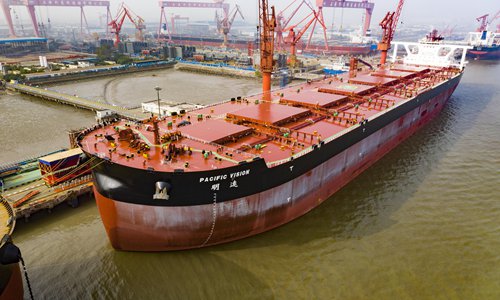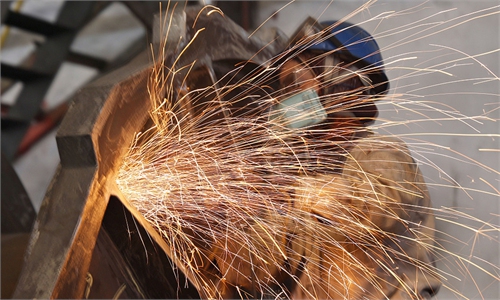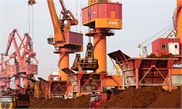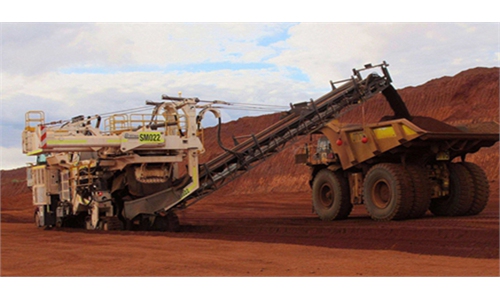
Shanghai Waigaoqiao Shipbuilding Co delivers a 400,000-ton very large ore carrier (VLOC) to China Merchants Energy Shipping Co on Wednesday. It measures 30.4 meters from the hull to the top, with a maximum capacity of 400,000 tons. The ship will be used to transport iron ore between Brazil and China. Photo: VCG
Relevant government agencies in China are mulling supports to ensure iron ore supply, including significantly increasing domestic output and promoting overseas projects, industry officials said over the weekend, in the latest effort to expand supply sources and cut reliance on countries such as Australia amid rising bilateral tensions.
Analysts noted that the efforts will ensure steady iron ore supply and increase the country's pricing power and international competitiveness in the steel industry.
Luo Tiejun, vice president of the China Iron and Steel Association (CISA), said at an industry conference on Saturday that relevant departments are studying further supports to improve protection of domestic ire ore resources, striving to increase domestic output of iron ore concentrate by more than 100 million tons during the 14th Five-Year Plan period (2021-25), according to the CISA's official website.
Moreover, Luo noted that the country will promote and accelerate the development of overseas iron ore resources projects such the one in Simandou.
These efforts are meant to increase China's pricing power and international competitiveness in the steel industry, while reducing the country's dependence on resources from foreign countries, Wang Guoqing, research director at the Beijing Lange Steel Information Research Center, told the Global Times on Sunday.
According to Wang, the development of domestic iron ore resources has encountered challenges over the past two years due to environmental restrictions, the impact of a heavy tax burden, and high cost, while the price of iron ore has dropped significantly.
This situation has led China's external dependence on iron ore to increase continuously, going from 50 percent to 80 percent during recent years, and resulting in the import price surging from $130 per ton from November to $230 per ton in May, according to media reports.
Luo stressed that iron and steel production has fallen back and the price of imported iron ore has returned to a reasonable range under regulation, however, it is still crucial for the industry to understand the challenges and work on resolving the shortcomings such as high operational cost for obtaining mining rights and heavy tax burdens.
Authorities have rolled out measures and support programs to relieve the heavy tax burden and reduce double taxation to promote domestic mining projects, said Wang, adding that China is also gradually utilizing iron ore from other countries and regions besides Australia, aiming to reduce the dependence on iron ore from countries like Australia and Brazil.
Global Times



